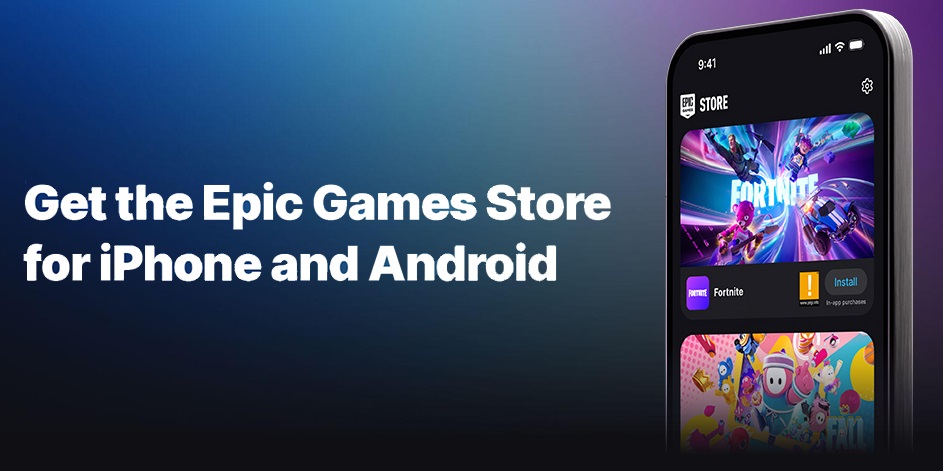
Epic Games on Monday announced a new antitrust lawsuit, targeting both Google and Samsung. This lawsuit, filed four years after Epic sued Google over an app store monopoly, now accuses both tech giants of collaborating to stifle competition in the app distribution market.
Allegations Against Google and Samsung
Epic Games claims that Samsung’s recent Auto Blocker feature is part of a coordinated effort with Google to block third-party app stores. This, they argue, secures the Google Play Store’s dominance on Samsung devices by restricting competition.
Epic stated that Auto Blocker “cements” the Google Play Store as the “viable way to get apps on Samsung devices,” effectively preventing other stores from competing fairly.
According to Epic, this lawsuit addresses “coordinated efforts to block competition”, undermining the jury’s ruling in Epic’s previous case against Google. That verdict found that Google’s app store practices, including deals with phone manufacturers like Samsung, were illegal.
What is Auto Blocker?
Introduced by Samsung in October 2023, Auto Blocker initially allowed users to opt in to prevent app installations from sources outside the Google Play Store and Samsung Galaxy Store.
However, in July 2024, Samsung made Auto Blocker a default feature, significantly complicating the process for users to install apps from third-party sources. Epic pointed out that this shift forces users to navigate a 21-step process, likening it to Google’s complex “Unknown Sources” process.
Epic argued that Auto Blocker undermines the court’s ruling in their previous case against Google, where the jury found that Google’s agreements with device manufacturers were “unreasonably restraining trade in a relevant antitrust market.”
Google’s History with Samsung
Epic claims that Google has a long history of paying manufacturers, including Samsung, to prevent competition.
This included a Revenue Sharing Agreement between Google and Samsung in 2020, which allegedly disincentivized Samsung from competing with the Google Play Store. Epic noted, “Samsung’s Galaxy Store is well-positioned to compete with the Play Store but has been held back due to Google’s deals.”
During the Epic v. Google trial, evidence was presented showing that Google paid Samsung to reduce competition. This included an initiative called Project Banyan, which aimed to phase out the Samsung Galaxy Store.
Epic’s Request to the Court
Epic Games is asking the court to prohibit Google and Samsung’s anticompetitive behavior and demand that Samsung remove Auto Blocker as a default setting.
Epic also stressed that it is committed to ensuring the jury’s previous decision is upheld, stating, “We will take all necessary steps to ensure this decision is fully upheld.”
Google’s Response
Google denied any involvement in creating Auto Blocker, calling Epic’s lawsuit “meritless and dangerous.”
In a statement to The Verge, Dave Kleidermacher, head of security for Android, emphasized that “Android allows sideloading” and defended Google’s security measures, such as Google Play Protect, designed to protect users from harmful apps.
Kleidermacher criticized Epic’s focus on app store access, stating, “This is about user safety, not access to a game. Epic’s lawsuit puts their corporate interests above user protections.”
Samsung’s Response
Samsung also responded to Epic’s claims, emphasizing that users can turn off Auto Blocker during the initial setup process.
In a statement provided to The Verge, Samsung’s spokesperson, Chris Langlois, highlighted the company’s commitment to “market competition, consumer choice, and user control.” Samsung labeled Epic’s lawsuit “baseless” and promised to contest it.
Epic’s Future Plans
Epic CEO Tim Sweeney admitted during a roundtable interview that the company does not yet have direct evidence of collusion between Google and Samsung but is hopeful that this will emerge during the discovery phase. He noted that Epic is closely monitoring other companies but has only identified Samsung as engaging in such practices so far.

Sweeney also addressed the Epic Games Store, launched on Android and iOS in August 2020, noting that the store has seen 10 million mobile installations. However, he believes the app store’s potential is much greater, with a target of reaching 100 million installations by the end of the year.
Conclusion
Epic Games’ legal battle against Google and Samsung continues, with the company accusing the tech giants of deliberately undermining competition.
The outcome of this case may set a precedent for future app store practices and influence how companies like Google and Samsung interact with third-party app stores.
